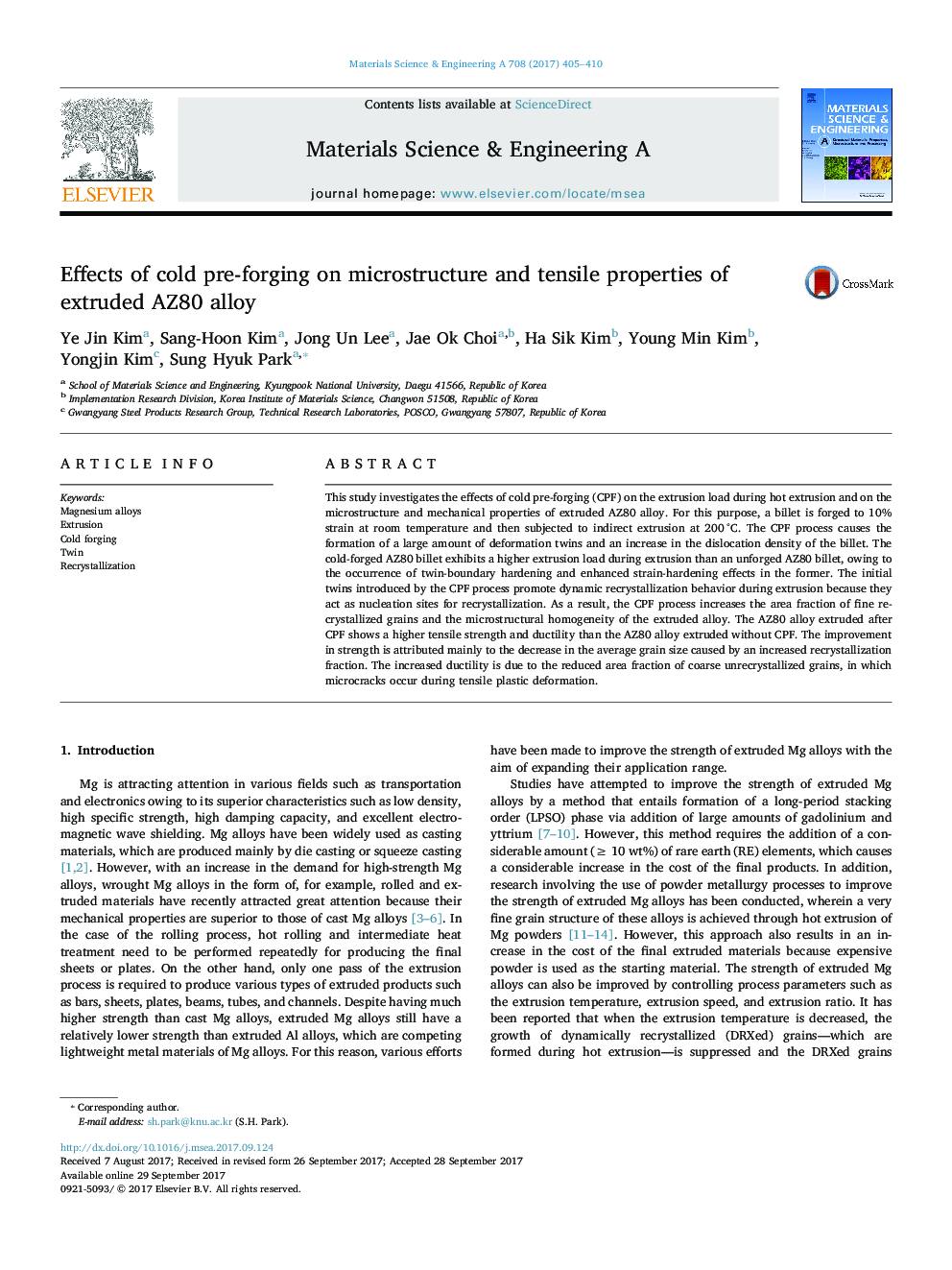| Article ID | Journal | Published Year | Pages | File Type |
|---|---|---|---|---|
| 5455135 | Materials Science and Engineering: A | 2017 | 6 Pages |
Abstract
This study investigates the effects of cold pre-forging (CPF) on the extrusion load during hot extrusion and on the microstructure and mechanical properties of extruded AZ80 alloy. For this purpose, a billet is forged to 10% strain at room temperature and then subjected to indirect extrusion at 200 °C. The CPF process causes the formation of a large amount of deformation twins and an increase in the dislocation density of the billet. The cold-forged AZ80 billet exhibits a higher extrusion load during extrusion than an unforged AZ80 billet, owing to the occurrence of twin-boundary hardening and enhanced strain-hardening effects in the former. The initial twins introduced by the CPF process promote dynamic recrystallization behavior during extrusion because they act as nucleation sites for recrystallization. As a result, the CPF process increases the area fraction of fine recrystallized grains and the microstructural homogeneity of the extruded alloy. The AZ80 alloy extruded after CPF shows a higher tensile strength and ductility than the AZ80 alloy extruded without CPF. The improvement in strength is attributed mainly to the decrease in the average grain size caused by an increased recrystallization fraction. The increased ductility is due to the reduced area fraction of coarse unrecrystallized grains, in which microcracks occur during tensile plastic deformation.
Related Topics
Physical Sciences and Engineering
Materials Science
Materials Science (General)
Authors
Ye Jin Kim, Sang-Hoon Kim, Jong Un Lee, Jae Ok Choi, Ha Sik Kim, Young Min Kim, Yongjin Kim, Sung Hyuk Park,
